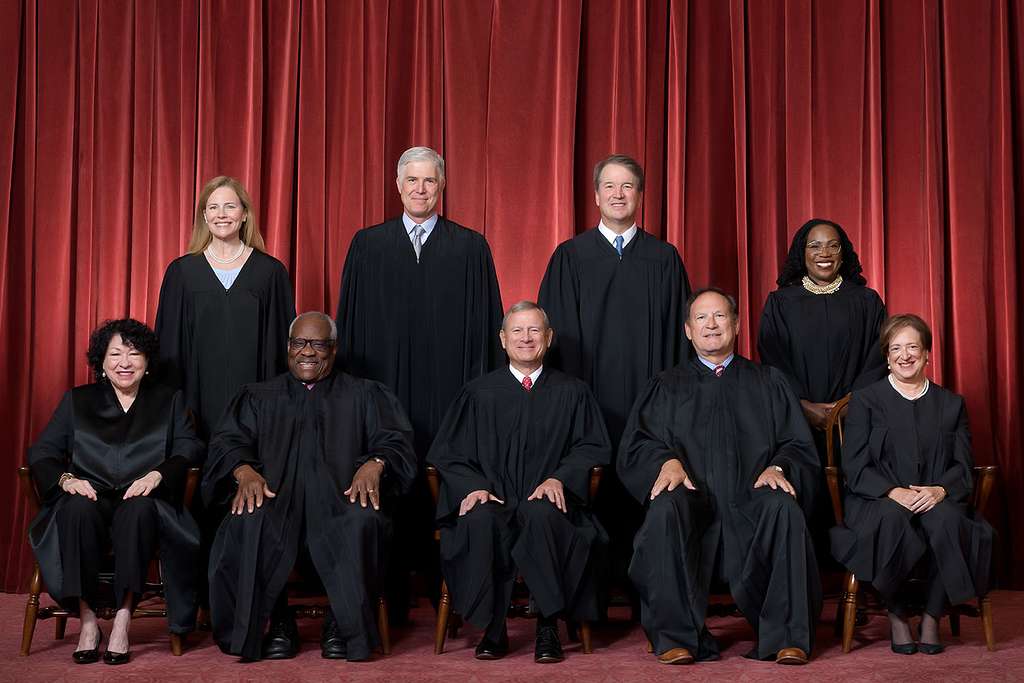On November fifth, voters went to the polls and chose their president, and the answer was resounding: they wanted Donald Trump. Mr. Trump won every single swing state as well as the popular vote, a shocking result that essentially no one predicted. Even more puzzling, Republicans did quite badly in Congressional races (several seats are still up for grabs, but it’s likely Republicans will end up with an even slimmer margin than they already have), and even worse in the senate races—out of the five senate seats in swing states, Republicans indisputably lost four, and the fifth one, in Pennsylvania, is so close that the Democrat is refusing to concede until the vote is fully in.
The reasons why this happened—global anti-incumbency bias, a rushed campaign, bad turnout, Gaza, sexism, disinformation—will be studied by both parties for decades to come. But the important part is that now, Donald John Trump will once again lead the free world. What now?
Will they enact Project 2025, the Heritage Foundation’s plan for a Republican Presidency? The answer is: probably. The 2016 Mandate fFor Leadership, which was the 2016 equivalent to Project 2025, had 65% of its policies enacted, and even more attempted. Close Trump allies, including his nominee for Deputy Chief of Staff, Stephen Miller, and Vice President-elect J.D.Vance, have close ties to the Heritage Foundation and Project 2025. It’s highly likely that Mr. Trump will attempt to enact most of it.
So what does Project 2025 propose? It suggests firing thousands of civil servants in the executive branch, and replacing them with MAGA loyalists—s- this is already part of Trump’s official agenda. Similarly, Trump has already confirmed that he plans to dissolve the department of education, something Project 2025 also mentioned. Project 2025 also includes mass deportations, which were the cornerstone policy of the Trump campaign.
Project 2025 plans to eliminate transgender rights on a federal level, ending all recognition of transgender people and making hormone replacement therapy illegal. Something Trump has supported in a series of wildly offensive and transphobic statements— (Anyone who’s watched a college football game this year has seen that ‘Kamala Supports They/Them’ ad). It suggests massively cutting taxes for the uber-wealthy and cutting overtime pay, which weren’t official Trump/Vance campaign positions but are consistent with the first Trump administration’s policies.
Parts of the Heritage Foundation’s plan are inconsistent with Trump’s statements, but not necessarily out of the question. For example, a national abortion ban, a total ban on pornography, the dismantling of the National Weather Service, an end to farming subsidies, and various other radical policies that would represent a huge shift in American politics and a major democratic backslide.
Beyond this, Trump also has some policies which are his own creation, including but not limited to: executing drug dealers, completely bypassing the no cruel or unusual punishment eighth amendment; imposing tariffs on foreign countries, allies and enemies alike, treating geopolitics as if they were a reality TV show; banning Muslims from entering the country; ending birthright citizenship and finally letting Israel annex the West Bank and Russia invade Ukraine. In addition, Trump has discussed a series of worrying policies that aren’t technically official, but nonetheless disturbing. He suggested that Liz Cheney be put on military tribunal, that the constitution be suspended, recommended that we kill the families of terrorists, that the military attack “the enemy within”, and that he be allowed to run for a third term, along with dozens of other similar statements.
So, how much of this will he be able to enact? The answer is: relatively little. Trump came into the White House in 2017 with a backlog of Obama-era judicial appointments, allowing him to appoint remarkably many judges. However, over the past four years, Biden has shockingly been able to meet that number of appointments, and Trump won’t have a backlog of judges to appoint, meaning Trump will be in a much worse situation with the judicial branch than eight years ago. The filibuster will allow democrats in the senate to veto extreme legislation, and Senate Majority Leader John Thune is a relative moderate that will lead Senate Republicans into a role as party moderators. The Constitution was written with people like Trump in mind, and though Trump and other similar leaders enacted authoritarian policies at one point or another, the nation never crumbled.
Many people have compared Trump’s reelection to the rise of Hitler. However, this is not a good or valid comparison. Hitler was able to rise to power because the Weimar constitution was written in such a way that power was already heavily centralized, whereas the United States has one of the most decentralized governments in the world.
Trump will be able to replace government employees with loyalists, but not to the degree he wants to—the military, IRS, CIA, FBI, and federal reserve are too decentralized to replace.
However, the State department, Bureau of Land Management, Department of Justice, Department of Agriculture, CDC, and others will be completely revamped and reorganized in Trump and Musk’s vision. Trump will unequivocally be able to dismantle the Department of Education, which is relatively unlikely to affect California, which consistently surpasses DoE standards, but will be hugely impactful in states like New Mexico and Arkansas that only meet their educational requirements due to federal funding.
The Trump administration could release a statement ending recognition of transgender people, which would be horrific, but can’t ban HRT—Democrats in the Senate would filibuster it. Trump will cut taxes for the richest few and make life harder for unions. That much is fully inevitable. A ban on contraceptives and pornography is logistically impossible—it would not make it through the legislature, and even if it did, the courts would strike it down.
Depending on how actively antagonistic towards the climate the 47th administration is going to be, the National Ocean and Atmospheric Administration (NOAA) may be dismantled. Ending farming subsidies is absolutely possible and within the party’s reach, however, this seems unlikely as it would tank both the economy and their voter base.
Unfortunantly, Trump will most likely be able to institute the death penalty for drug dealers, which many republicans support. Trump will be able to enact tariffs, which will hurt the economy and massively raise prices, but hopefully he won’t be able to enact a universal tariff, which would be a fiscal nightmare.
Whether Trump will be able to reinstate the Muslim ban is in question—it requires both his cabinet and the Supreme Court to support it. The most enduring feature of the first Trump administration was a revolving cabinet, with people being regularly fired and hired and re-hired and resigned and convicted and pardoned, etc. etc. etc. Whether Trump can get his ducks in a row enough to enact a Muslim ban, or whether he’ll even still want it now that Syrian refugees and ISIS aren’t a factor, is questionable.
Ending birthright citizenship is not possible.
Israel will likely invade the West Bank and act with complete disregard for human rights in Gaza.
Trump’s unfocused and unorganized foreign policy and constantly changing cabinet make it near impossible to predict what will happen in Ukraine. Will he pull support, will he pull out of NATO, will he divide the country? All of these are possibilities.
However, Trump will not be able to do some of the more unsound policies he has been discussing—there is no mechanism in the US Government to execute political enemies, military tribunals do not exist for civilians, the military cannot be used against American citizens, and Trump cannot run for a third term.
A national abortion ban will not happen. First of all, Trump has stated repeatedly that he wants abortion to be up to the states. Going back on that would be political suicide. Second of all, Republicans do not have, and will not have the votes to do that. They have a slim majority in the house and several Republicans there are either pro-choice or support it being up to the states. In the Senate they will get filibustered immediately. Third of all, the Supreme Court has made their position clear and will not go back on it; it’s up to the states. Unless Republicans win the midterms in two years, a national abortion ban is simply not feasible. The current abortion bans are horrible but they will not be expanded federally.
The mass deportations Trump has planned will be grim, and it’s difficult to find a silver lining. Millions of people are going to be deported. States like California will try to help many, but many will still be affected. Hopefully, the agriculture sector and its influential billionaires will realize how catastrophic this is and work to stop it. Remember the wall? That was Trump’s whole thing, and little happened—because it cost too much. Deportations are much more costly. Only time can tell, but this is the single issue I am by far most pessimistic about.
In conclusion— the next four years will be very difficult, but do not lose hope.While Trump has shown authoritarian tendencies and sometimes chaotic decision-making he is operating in a system designed to restrict people like him. Do not lose hope—for now is the time to resist.
“Ambition must be made to counteract ambition. The interest of the man must be connected with the constitutional rights of the place. It may be a reflection on human nature, that such devices should be necessary to control the abuses of government.”






















